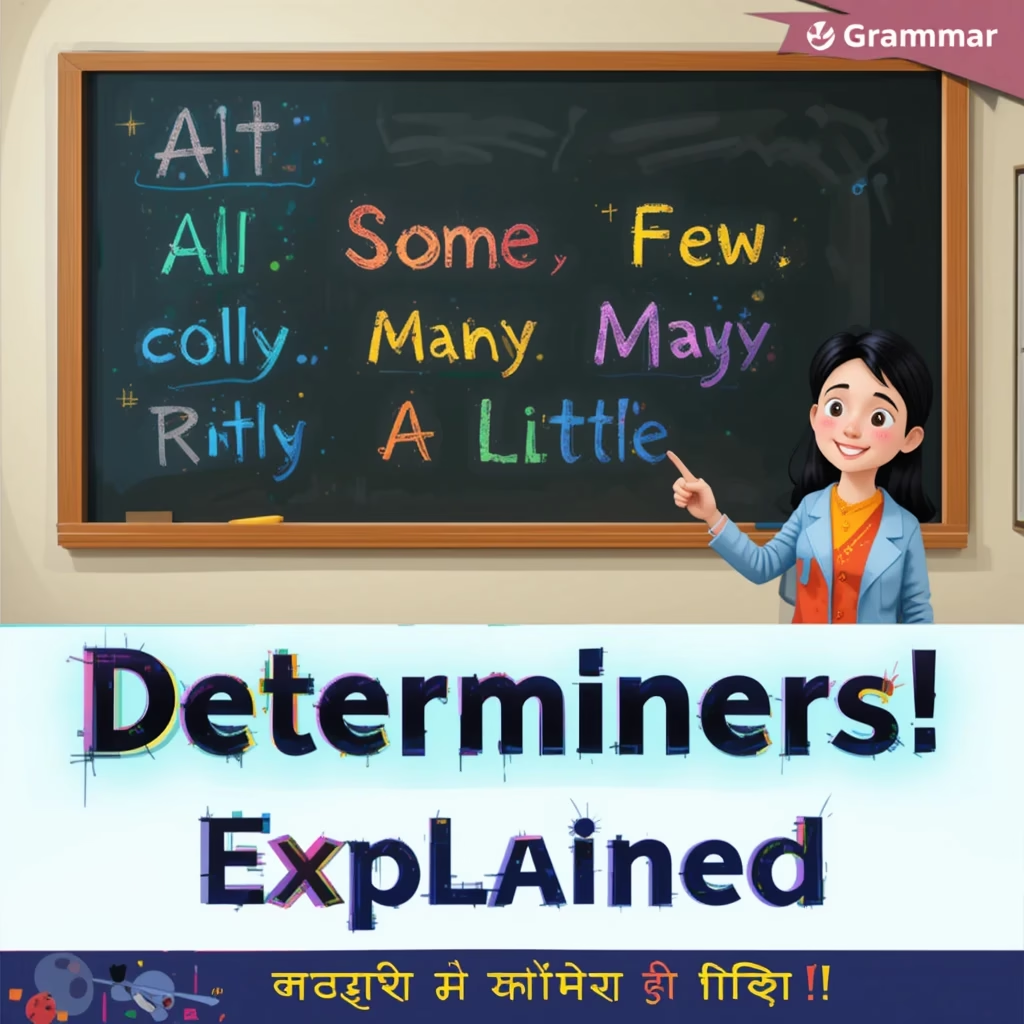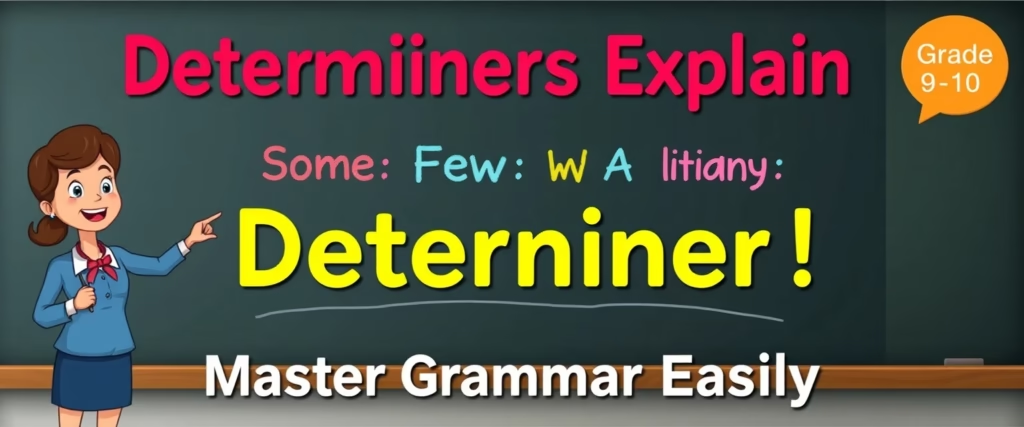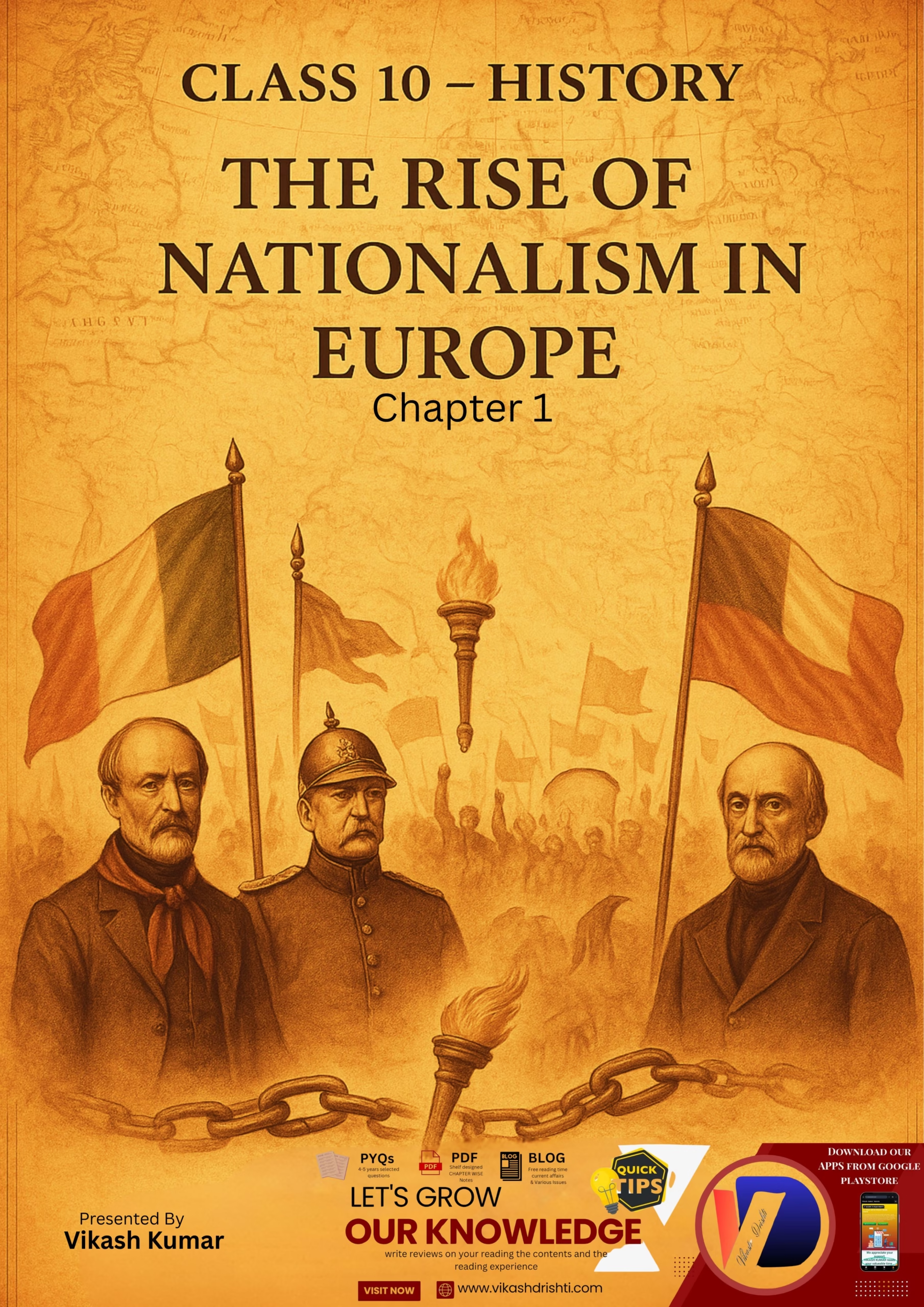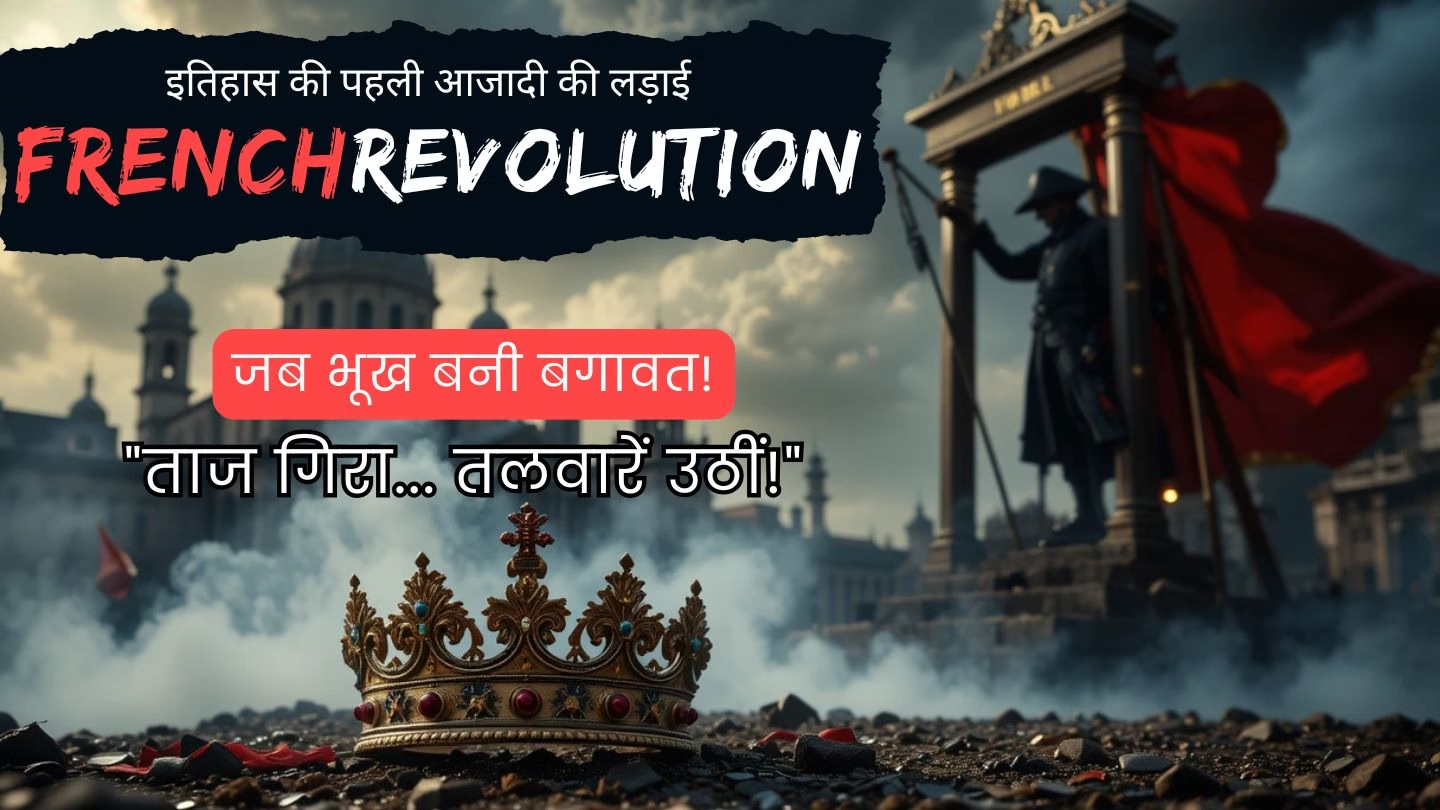🧑🏫 Topic: Determiners

आइए आज Class 9 और 10 के छात्रों के लिए “Determiners” को एक आसान सा examples के साथ सीखते है और सिखाते है । आइए शुरू करते हैं: – Vikash Kumar Hansda
“Determiners are the words used before nouns to tell us which or how many things we are talking about.”

✏ 1. Determiner Kya Hota Hai? (What are Determiners?)
Definition: Determiner वो शब्द होते हैं जो किसी noun से पहले आकर उसकी संख्या, मात्रा, पहचान या अधिकार को बताते हैं।
🔹 जैसे:
- This book is interesting.
- I have some friends.
- My car is red.
- She bought many apples.
यहाँ this, some, my, many — ये सब determiners हैं क्योंकि ये noun के पहले आकर हमें उस noun के बारे में जानकारी दे रहे हैं।
📋 2. Types of Determiners (कितने प्रकार के होते हैं?)
| Type | Example Words | Usage |
|---|---|---|
| Articles | a, an, the | Indefinite & Definite |
| Demonstratives | this, that, these, those | दिखाने के लिए |
| Possessives | my, your, his, her, its, our, their | स्वामित्व के लिए |
| Quantifiers | some, many, much, few, little, a lot of | मात्रा बताने के लिए |
| Numbers | one, two, three… | निश्चित संख्या |
| Distributives | each, every, either, neither | एक-एक को या दो में से |
| Interrogatives | which, what, whose | प्रश्न पूछने के लिए |
| Demonstrative Pronoun vs Determiner | this, that etc. | जब noun के पहले आता है तो determiner, अकेला होता है तो pronoun |
⚠ 3. Common Confusions and Tricky Differences
📍 Interrogative Sentences vs Interrogative Determiners
| Concept | Example | Explanation |
|---|---|---|
| Interrogative Sentence | What is your name? | ये पूरा वाक्य है – प्रश्न पूछने वाला। |
| Interrogative Determiner | Which book do you want? | यहाँ which एक noun (book) से पहले आया है – इसलिए ये determiner है। |
💡 Note: Interrogative determiners के बाद हमेशा noun आता है। अगर noun नहीं है, तो वो pronoun है।
📍 A few / Few / A little / Little – क्या अंतर है?
| Word | Noun Type | Meaning | Emotion |
|---|---|---|---|
| Few | Countable | बहुत कम (लगभग नहीं के बराबर) | Negative |
| A few | Countable | कुछ तो हैं (थोड़े लेकिन हैं) | Positive |
| Little | Uncountable | बहुत कम (लगभग नहीं के बराबर) | Negative |
| A little | Uncountable | थोड़ी सी मात्रा है | Positive |
🔹 Examples:
- Few people attended the meeting. (बहुत ही कम, दुखजनक)
- A few people helped me. (कुछ लोगों ने मदद की, खुशी की बात)
- Little water is left. (पानी लगभग खत्म)
- A little water is left. (थोड़ा पानी अभी बचा है)
📍 Some vs Any vs A Lot of vs Lots of
| Word | Use | Countable/Uncountable | Sentence |
|---|---|---|---|
| Some | Affirmative, Offers | Both | I have some friends. |
| Any | Negative, Questions | Both | Do you have any sugar? |
| A lot of | Large amount | Both | I have a lot of work. |
| Lots of | Informal of “a lot of” | Both | She has lots of friends. |
✅ Rule of Thumb:
- Some: सकारात्मक बातों में
- Any: प्रश्न या नकारात्मक बातों में
- A lot of / Lots of: अधिक मात्रा दिखाने के लिए
🔍 4. Error पहचानने का तरीका (How to Spot Errors in Determiners?)
- Check Noun Type – Countable या Uncountable?
- Sentence का Tone – Positive है या Negative?
- Number vs Quantity – निश्चित संख्या है या केवल मात्रा?
- Position – क्या determiner noun के ठीक पहले है?
- Wrong combinations – जैसे:
- ❌ Much apples → ✔ Many apples (क्योंकि apples countable हैं)
- ❌ A lots of sugar → ✔ A lot of sugar (a lots नहीं होता)
🧠 5. कुछ टेढ़े-मेढ़े (Tricky) Determiners और Errors
| Wrong Sentence | Correct Sentence | Reason |
|---|---|---|
| He has less friends. | He has fewer friends. | Friends = countable |
| I don’t have much apples. | I don’t have many apples. | Apples = countable |
| Do you have some milk? | Do you have any milk? | Questions में “any” |
| A lots of books are here. | A lot of books are here. | “A lots of” गलत |
✍ 6. Practice Time – Fill in the blanks
- I have _____________________ money in my wallet. (a little / few)
- There are _______________________ books on the table. (many / much)
- She has ______________________ friends to help her. (few / a few)
- _______________ pen is yours? (Which / What)
- We don’t have ________________ time left. (any / some)
Learn More about DETERMINERS
🧾 Conclusion:
Determiners कोई कठिन topic नहीं है, बस आपको 3 बातों का ध्यान रखना है:
- Noun countable है या uncountable?
- बात positive है या negative?
- कौन सा determiner सही बैठ रहा है sentence के हिसाब से?
Practice and observation से आप easily error spot कर पाएंगे और सही usage सीख जाएंगे।
Exactly !!!!
The French Revolution proves how strong ordinary people can be when they stand together for their rights…No throne or crown…
Hm..😐
that’s the situation of students nowadays. Didn’t you heard the news that a girl died after her father beaten her…
LATEST POSTS
सरल वर्तमान काल (Simple Present Tense)
सरल वर्तमान काल (Simple Present Tense)

🧑🏫 Topic: Determiners

✨ The Rise of Nationalism in Europe – एक कहानी राष्ट्रवाद की… (Part 2)

“French Revolution” – इतिहास की सबसे डरावनी क्रांति



[…] Vikash Kumar HansdaClick Here for PART 1 […]